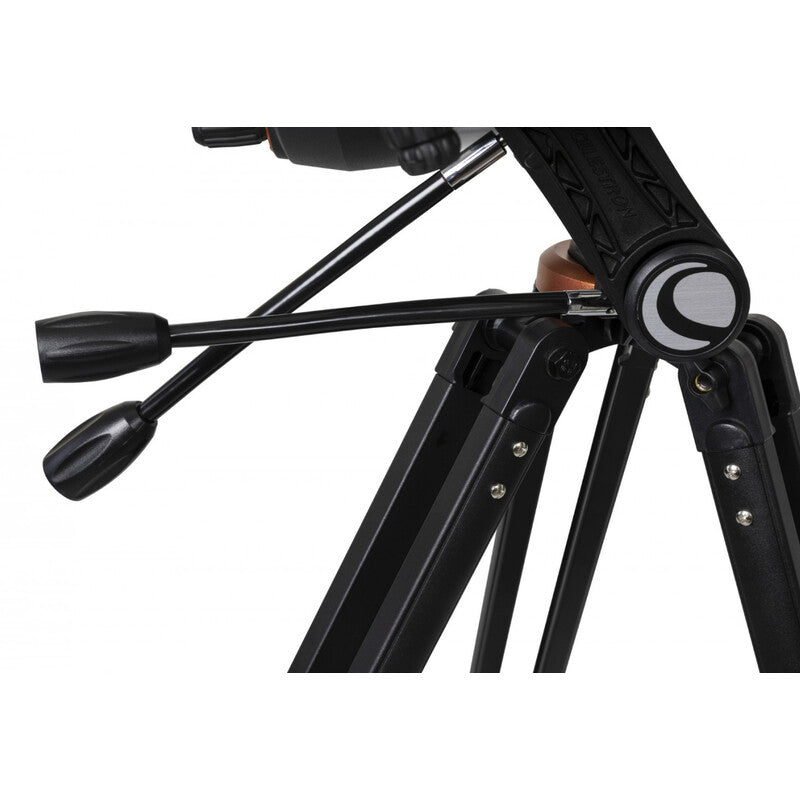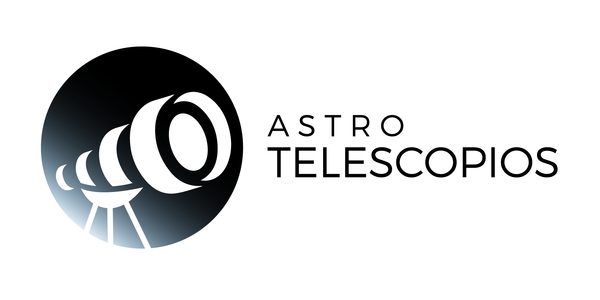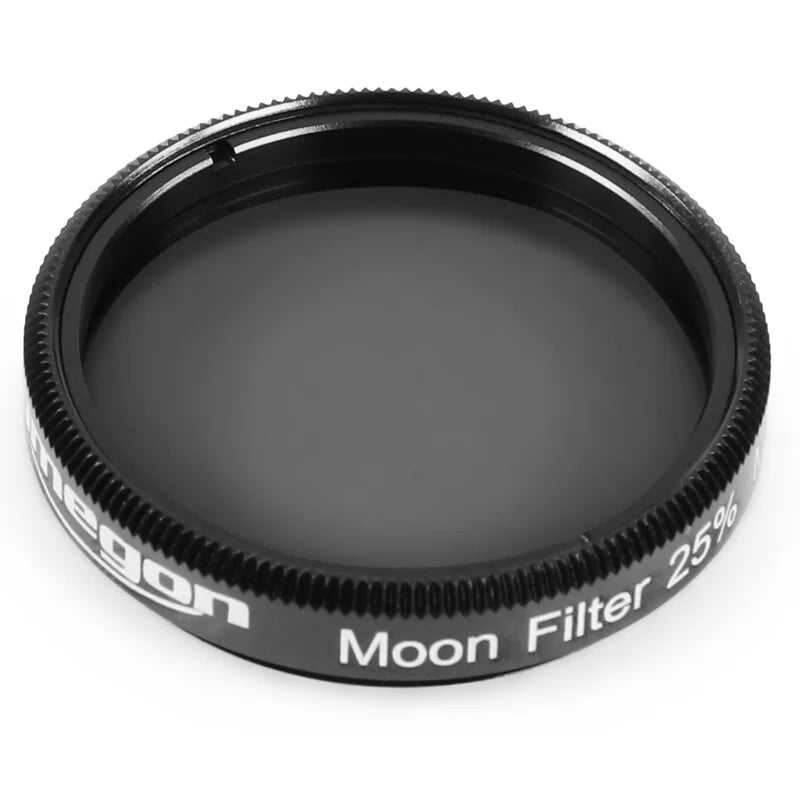With the telescopes of the series With StarSense Explorer , anyone can easily find the best viewing objects in the sky—no star charts needed!
All you have to do is install the free StarSense Explorer app on your phone and place it in the special telescope holder.
After a brief procedure, the software will have learned where the telescope is and how it is positioned. To do this, the application uses the GPS from the phone. The app then displays a list of interesting objects that can be seen that night. When you select an object, arrows on your phone's screen show how the telescope should be rotated to align it with the celestial object. Alternatively, you can also scroll freely through the list. planetarium view to identify objects of interest.
No internet connection required During observation, you can't communicate with the telescope via Wi-Fi or Bluetooth. The phone recognizes the sky through the built-in camera and the mount's special mirror system. The app tells you what the camera sees and how to move the telescope to lock onto a desired object (PushTo).
The StarSense Explorer software uses a special algorithm (LISA), which is also used in the space satellites for orientation. Star patterns recorded by the camera are compared to the internal database. These calculations are combined with information from the phone's gyroscope and accelerometer. The result is a very high level of accuracy that no other planetarium app can match. So you can navigate safely at night, even without prior knowledge.
StarSense Explorer technology also works accurately where star maps fail: in the suburban sky with light pollution . Even here, the StarSense Explorer safely guides you to planets, double stars, the Orion Nebula, or other fascinating objects.
StarSense Explorer can be used with the Android and iOS operating systems . The exact requirements and a list of tested phones can be found at this link: starsenseexplorer.simcur.com
The telescope can also be used without a phone, as a finderscope is included in the scope of delivery.
Celestron Schmidt-Cassegrain Optics:
Despite the long focal length of Schmidt-Cassegrain optics, these telescopes have a very short tube design , resulting in a compact and extremely light or, that It can be easily transported . The light hits an aspherical Schmidt corrector plate and is then projected onto the spherical primary mirror. This reflects it onto a secondary mirror, which in turn reflects it back onto the primary mirror. The light beam passes through the hole in the center of the primary mirror. The light is then projected onto the focuser at the lower end of the tube. the system is closed and is free from air turbulence, which could damage the image. Of course, this also provides optimal protection against dust. The Schmidt plate is multi-coated, ensuring bright, glare-free images.
This optic offers a Very good image and the contrast and sharpness are great. to enjoy planetary observation. The Schmidt-Cassegrain system is an all-rounder for observation and photography , and includes a huge range of optional accessories. As seen from the lower end of the tube easy to point the telescope . This instrument is also ideal for occasional terrestrial applications, such as bird watching at short distances. Celestron's SC optics are designed for a diameter ratio of approximately 1:10, so it can also be used for astronomical photography .
He primary mirror focus It guarantees a very wide focusing range, allowing the use of almost any accessory. Two positions are used in the positioning mechanism for focusing the main mirror. preloaded ball bearings to minimize mirror shifting (a typical problem when using single bushings). The use of High-quality materials , such as CNC-machined aluminum, cast steel, and stainless steel components, ensure high stability at a low weight; therefore, a heavy mount is not required, unlike other telescope designs.
Optical features:
- long focal length with a short frame
- lightweight aluminum tube
- high-quality Starbright XLT multi-coating
- closed system
- preloaded ball bearings focus the primary mirror with minimal displacement.
This azimuth mount allows you to move the telescope and align it towards the desired celestial object in a very intuitive way.
Specs
- Type: Reflector
- Construction type: Schmidt-Cassegrain
- Opening (mm): 150
- Focal length (mm): 1500
- Aperture ratio (f/) 10
- Resolution capacity: 0.92
- limit value (mag): 12.7
- Light collecting capacity: 460
- Maximum useful magnification: 300
- Tube weight (kg): 4.54
- Tube diameter (mm): 184.2
- Tube length (mm): 406
- Tube material: Aluminum
- Bonus: Starbright XLT
- Main mirror design: spherical
- Secondary mirror design: spherical
- Secondary mirror obstruction: 37
- Secondary mirror diameter (mm): 56
- Focuser: primary mirror focus
- Connection (eyepiece side) 1.25
- Rotary: Undefined
- Construction type: one arm
- Mount type: altazimuth
- Mounting easel: Vixen-Style
- Motors: no
- Weight (kg): 4.2
- GoTo: PushTo
- GPS: Yes
- Wi-Fi: no
- Alignment Process: StarSense Explorer
- Type: Tripod
- Accessory shelf: yes
- Weight (kg): 1.72
- Material: Aluminum
- 1.25" eyepieces: 40mm, 10mm
- Viewfinder telescope: Luminous dot viewfinder
- Dew shield: no
- Optical Deflection System: 1.25" - 90° Zenith Prism
- Flexible shaft: 2
Applications
- Professional astrophotography: no
- Moon and planets: yes
- Nature observation: no
- Nebulae and galaxies: yes
- Sun: no (only with appropriate sunscreen)




























